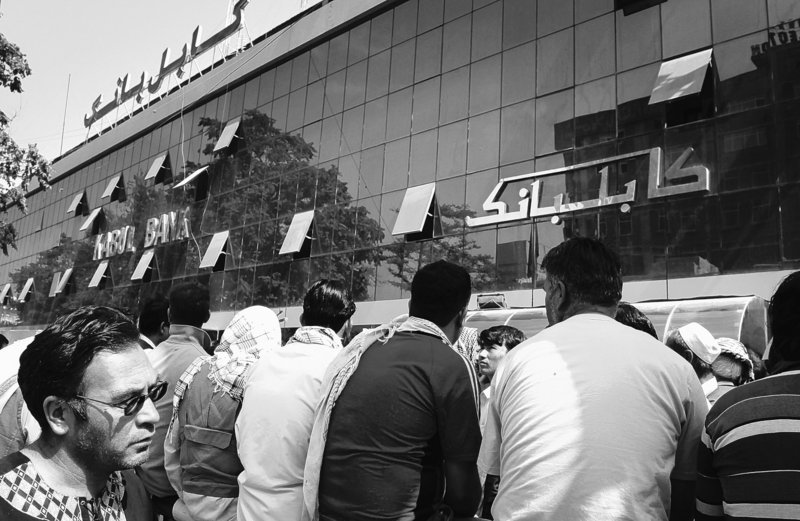KABUL, Afghanistan — Afghanistan’s largest bank is operating with its own money with no infusion of cash from the government despite a nearly weeklong run on the troubled institution, the nation’s top banking official said Monday.
The governor of the Afghan Central Bank assured Kabul Bank customers that their deposits were safe and would be guaranteed by the government. At the same time, Abdul Qadir Fitrat said that, as a safeguard, the central bank had moved to ban the sale of properties that some of the bank’s shareholders own in the capital.
Uncertainty about the future of the nation’s largest bank, which is partly owned by Afghan President Hamid Karzai’s brother, has further destabilized the war-torn country and efforts to build an effective government.
At the request of Afghan officials, a team from the International Monetary Fund arrived in Kabul on Sunday to review recent developments in the economic, financial and banking systems, an IMF official said.
Fitrat did not disclose details of the bank’s financial condition and it remained unclear how much money would be needed to shore it up if customers keep draining deposits.
“The Afghan government said that it has sufficient funds to cover this,” said the president’s brother, Mahmood Karzai, who holds a 7 percent share in the bank. “They have $4.6 billion in the central bank so there is no problem. We’re not talking about billions of dollars here.”
The run on the bank began last week after its top two executives were removed from their positions amid allegations of mismanagement, unorthodox lending practices and risky investments in property in Dubai, where values have plummeted.
The central bank said Sherkhan Farnood, former chairman of Kabul Bank, and Khalilullah Ferozi, former chief executive officer, resigned because, under new reforms, only banking professionals can hold the top operating positions at banks.
If problems at the bank are not resolved, it could have wide-ranging political repercussions. It handles the pay for government workers, soldiers and police in Afghanistan, which is beset by a Taliban insurgency.
Send questions/comments to the editors.



Success. Please wait for the page to reload. If the page does not reload within 5 seconds, please refresh the page.
Enter your email and password to access comments.
Hi, to comment on stories you must . This profile is in addition to your subscription and website login.
Already have a commenting profile? .
Invalid username/password.
Please check your email to confirm and complete your registration.
Only subscribers are eligible to post comments. Please subscribe or login first for digital access. Here’s why.
Use the form below to reset your password. When you've submitted your account email, we will send an email with a reset code.